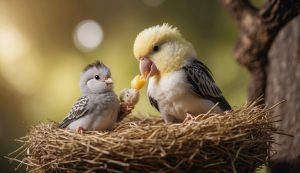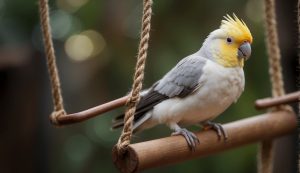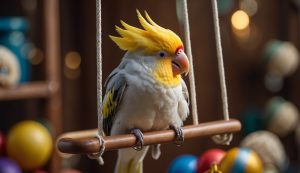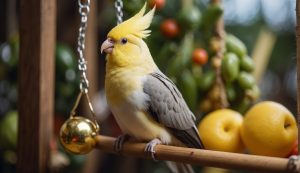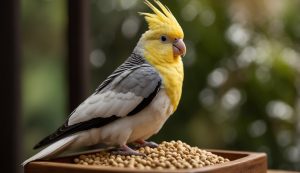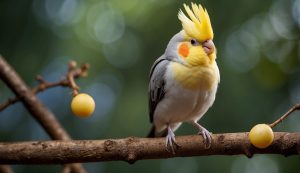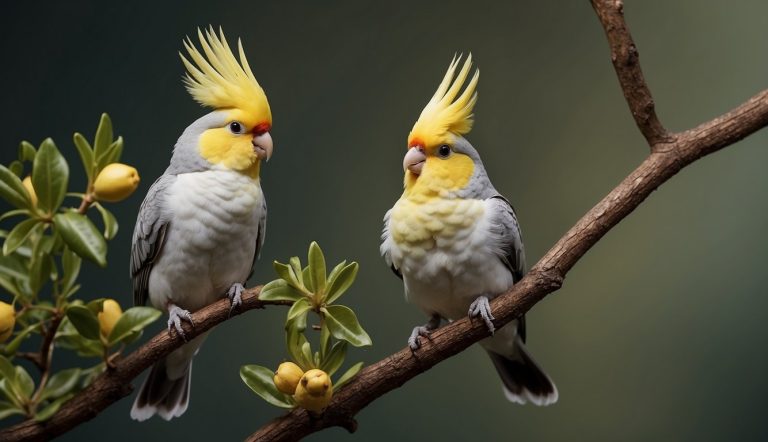Can Cockatiels Be Kept Alone? Understanding Solo Bird Care

Cockatiels are charming pet birds praised for their companionship and inquisitive nature. A common question asked by potential and current owners is whether a cockatiel can be kept alone or if it requires avian companionship.
Understanding the social needs of cockatiels is crucial as these birds are known for their social interaction in the wild, where they form strong bonds and flocks.
My experience as a bird owner and observer suggests that while they can survive alone, it’s important to provide adequate interaction and environmental enrichment.
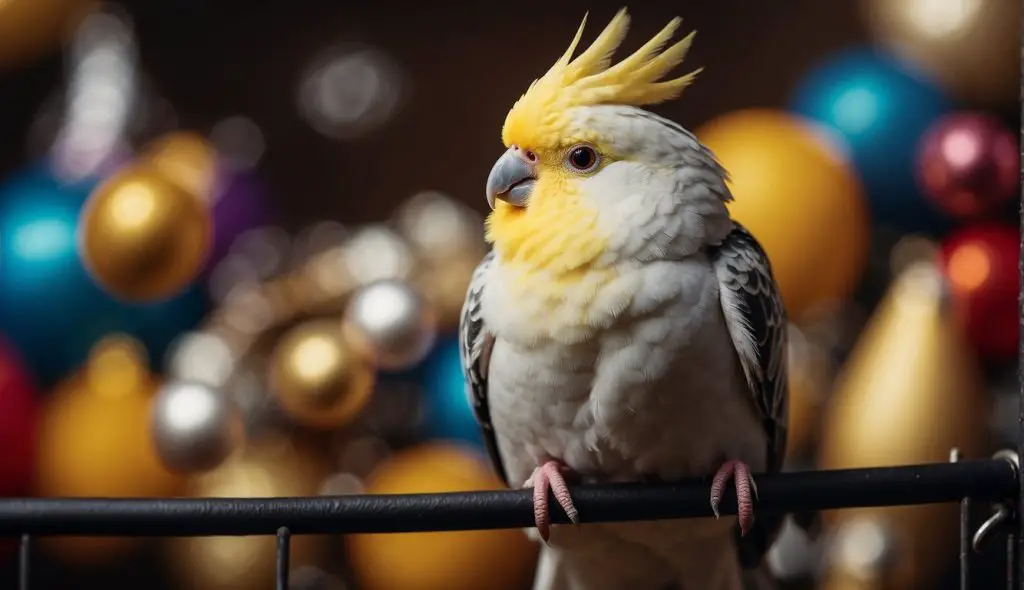
Creating a stimulating environment is essential for a single cockatiel to thrive. They are intelligent creatures that crave engagement and mental stimulation, which can be provided through toys, music, and interaction with their human caregivers.
Regular personal interaction helps to meet their social requirements and prevents the negative behaviors associated with loneliness.
Ensuring their health and overall well-being involves routine care and attention to any changes in their behaviors, which can indicate their emotional state.
Key Points
- Cockatiels are sociable and require regular interaction to thrive.
- A stimulating environment with toys and activities is essential for a solitary cockatiel.
- Building a strong relationship with your cockatiel is important for its emotional well-being.
Table of Contents
Understanding Cockatiel Social Needs
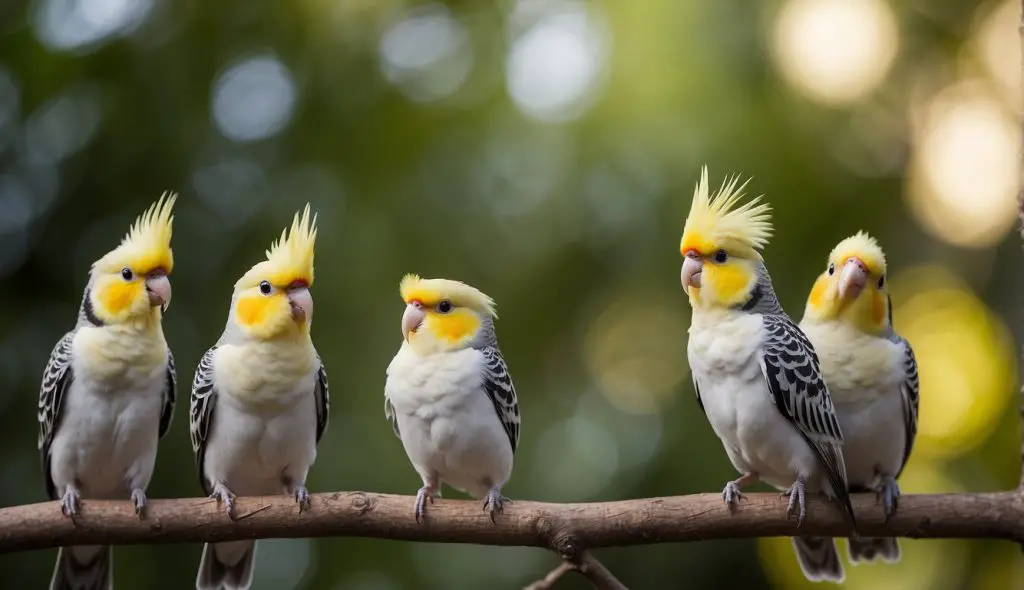
Cockatiels are highly social creatures that thrive on interaction and companionship. It’s important for me to recognize that meeting their social needs is a key aspect of their care.
The Nature of Cockatiels as Social Birds
In their natural habitat, my cockatiel ancestors lived in flocks, which provided them with constant social interaction and mental stimulation.
Social bonding forms a cornerstone of their behavioral needs, and it is through this lens that their requirement for companionship is best understood. Whether it’s with other cockatiels or with me, their human owner, these birds seek a connection to combat loneliness.
- Companionship: Vital for their emotional well-being.
- Flocks: The natural social structure that eliminates solitude.
In a domestic setting, if I’m not able to be around for considerable periods of the day, it may be wise to consider getting another cockatiel to keep mine company, as this can replicate the flock environment to some degree.
The Impact of Loneliness and Boredom
The absence of social interaction can lead to loneliness and boredom for cockatiels, manifesting in undesirable behaviors such as feather plucking or excessive vocalization.
- Mental Stimulation: Toys and puzzles to engage their minds.
- Social Interaction: Regular interaction with humans or other birds.
Both of these are crucial to alleviate the tedium of being alone.
By incorporating structured playtime and interactive toys into their daily routine, I aim to keep my cockatiel mentally active and socially engaged.
It’s clear that these birds require more than just food and shelter; they need meaningful companionship to truly thrive.
Health and Care Considerations
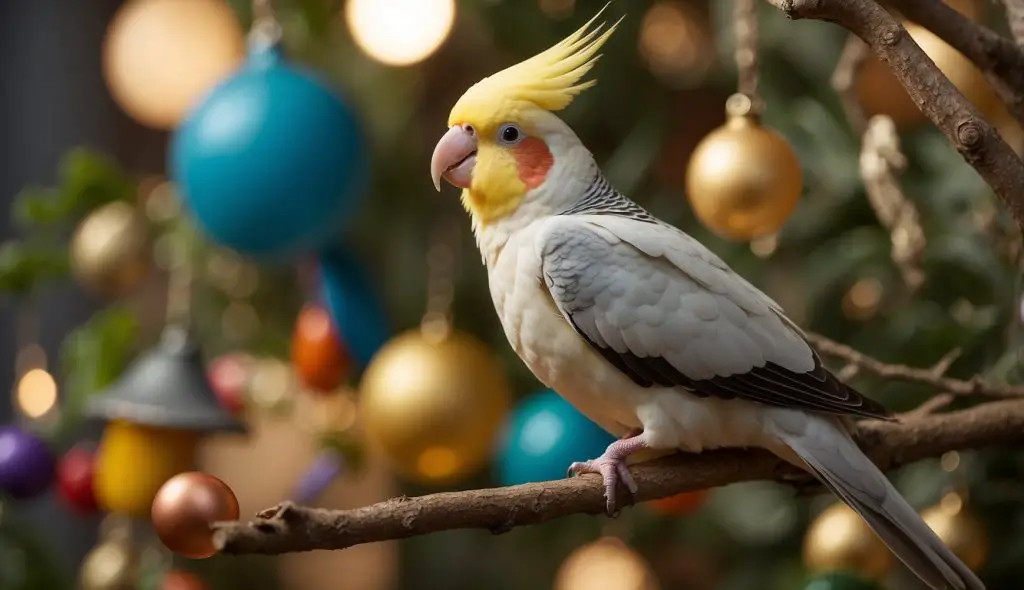
When I think about the well-being of cockatiels, I always prioritize their diet and regular vet visits. These aspects are crucial because they heavily influence the bird’s overall health.
Diet and Nutrition Essentials
As a cockatiel guardian, I’ve learned that a balanced diet is pivotal for my bird’s health. It’s not just about seeds; a varied diet is essential. Here’s what I focus on:
- Fresh Foods: A variety of fresh fruits and vegetables is a must. I often include broccoli, carrots, and apples.
- Pellets: They are an important staple, ensuring that my cockatiel gets all the necessary nutrients.
- Calcium Sources: Items like cuttlebone help meet their calcium needs for strong bones.
- Water: Fresh, clean water is always available for my bird to drink.
Regular Health Checks and Vet Visits
I maintain a schedule of regular vet visits to ensure my cockatiel’s health remains in tip-top shape. Here’s my routine:
- Annual Check-ups: These are non-negotiable for monitoring my bird’s overall health.
- Emergency Visits: I’m always prepared to visit the vet if I notice any concerning symptoms or behavior changes.
Behavioral and Emotional Well-being
In my experience with cockatiels, their well-being heavily relies on social interaction and mental stimulation. Without adequate attention, these sensitive birds can display signs of stress and depression, leading to various behavioral issues. Now let’s take a closer look at how to recognize and address these problems.
Recognizing Signs of Stress and Depression
- Stress: Cockatiels may exhibit stress through behaviors such as feather plucking or screaming. I watch for repeated patterns or changes in normal behavior that could indicate they’re feeling stressed.
- Depression: Signs of a depressed cockatiel might include a lack of vocalization, low activity levels, or refusal to eat. If my bird seems unusually withdrawn or indifferent to engagement, it might be experiencing depression.
- Loneliness and Love: These birds thrive on interaction. When left alone for too long, they might become lonely and show signs of distress. I need to observe for altered temperament or reduced interest in play, which often denote a need for more love and interaction.
- Feather Plucking and Self-Mutilation: A clear indicator that my cockatiel might be emotionally unwell is feather plucking. I keep an eye out for bald patches or skin lesions that can result from self-mutilation, a serious response to psychological discomfort.
Dealing with Behavioral Issues
- Behavioral Issues: Common signs include aggression, excessive screaming, and other forms of “bad behavior.” I address these promptly through behavioral modification techniques and environmental enrichment.
- Separation Anxiety: Much like other pets, cockatiels can develop separation anxiety. This can manifest as distress vocalizations or destructive behavior when I’m not around. Providing a consistent routine and companionship is key, whether from humans or other birds.
- Mental Health Management: Maintaining the mental health of my cockatiel involves regular interaction and engagement in stimulating activities. I often rotate toys and introduce new forms of play to keep my feathered friend mentally sharp and emotionally satisfied.
Building a Relationship with Your Cockatiel
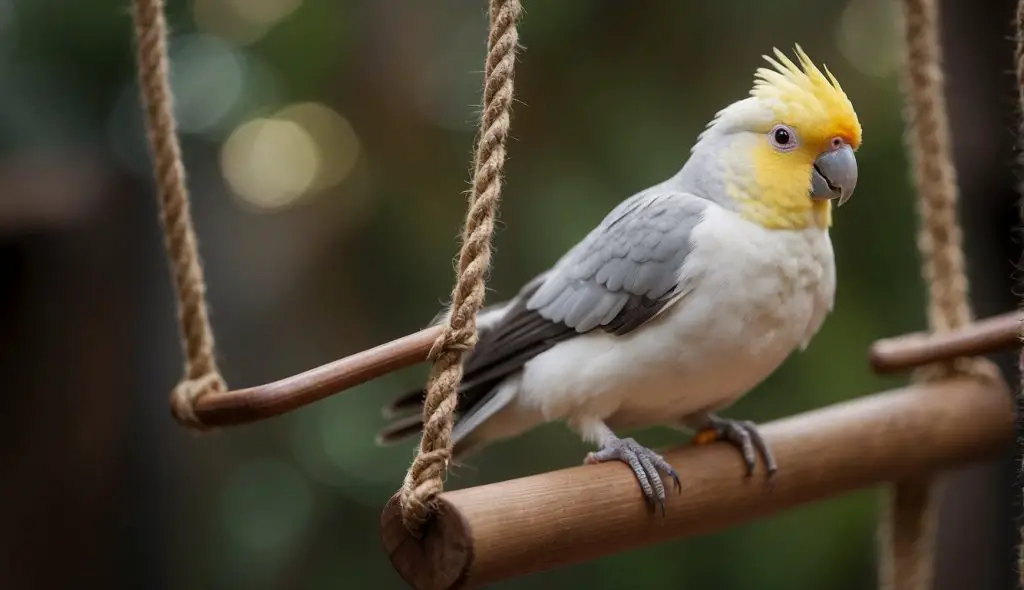
Before we discuss bonding and routines, it’s crucial for me to highlight that building a relationship with my cockatiel centers on trust and understanding. This entails consistent interaction and developing daily routines to make my companion feel loved and secure.
Bonding and Interaction Techniques
Bonding with my cockatiel is a process that involves patience and love. Here are some techniques I use:
- Regular, gentle handling: I make sure to handle my bird gently and frequently to build a physical connection.
- Responding to vocalizations: When my cockatiel vocalizes, I listen and respond to encourage communication and acknowledge their attempts to interact with me.
- Training sessions: I practice simple commands to keep my pet mentally stimulated and to reinforce our bond.
- Interactive play: I invest time in playing with my cockatiel, using bird-safe toys to strengthen our friendship.
The Value of Routine and Consistency
Cockatiels thrive on routine and consistency, as it gives them a sense of safety and expectancy. Here’s how I incorporate these into my bird’s life:
- Feeding schedule: I feed my cockatiel at the same times each day to establish a consistent routine.
- Regular bedtime: Ensuring my bird gets enough sleep at the same time each night reduces stress and promotes happiness.
- Time out of the cage: I set aside time every day for my bird to be out of its cage, which gives them necessary exercise and company.
Frequently Asked Questions
I understand that as a cockatiel owner, you might have several concerns about whether your feathery friend can be left alone. Here are some answers to the most common questions regarding keeping a cockatiel solo.
How long can I safely leave my cockatiel alone?
I can leave my cockatiel alone during a typical workday. This means they can be alone for 8-10 hours. However, I make sure to provide enough food, water, and entertainment to keep them comfortable.
Is it necessary to have a companion for my cockatiel, or can it live solo?
While cockatiels are sociable birds that enjoy company, I’ve found that a cockatiel can live happily without a fellow cockatiel companion. They just need sufficient interaction, mental stimulation, and regular bonding time.
What are the signs of loneliness in cockatiels?
I’ve learned to spot loneliness in my cockatiel by watching for signs like feather plucking, lethargy, and a change in vocalization habits. A decrease in appetite or aggressive behavior could also indicate that my bird feels lonely.
Is it okay to leave a cockatiel alone overnight?
Leaving my cockatiel alone overnight is generally okay as long as the environment is safe and comfortable. I ensure that my bird has a sleep cycle that’s undisturbed and cozy, which is important for their well-being.
Can cockatiels manage on their own for a few days?
I wouldn’t leave my cockatiel alone for a few days without making arrangements. Cockatiels need daily care, so if I’m away, I arrange for someone to check in on them, refresh their food and water, and spend some time interacting.
What should be provided for a cockatiel when it’s alone?
When I leave my cockatiel alone, I make sure to provide plenty of fresh food and water. I also give them toys and a radio or TV for background noise to keep them entertained.
A safe and clean cage in a comfortable, stable environment is also crucial.

